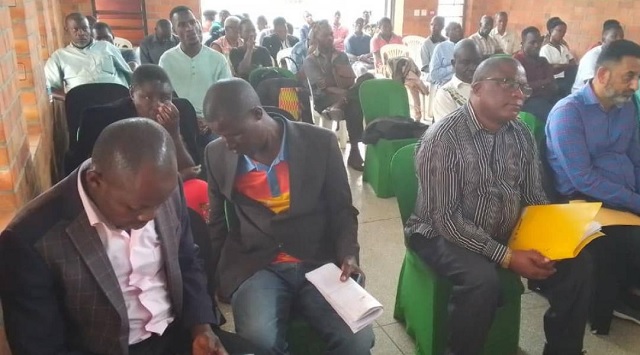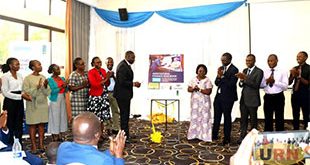
Kampala, Uganda | THE INDEPENDENT | The valuation court of Kampala Capital City Authority -KCCA has to date settled over 6,000 cases of property rate tax in a period of six months by consent and over 4,000 cases are pending judgment.
Samuel Muyizzi, the chairperson of the court while presiding over a court hearing at Kisenyi zone II in Kamwokya last Tuesday, said they are overwhelmed by the increase in cases of poor valuation of properties by KCCA in all the places the court has visited.
Court found several cases where people are wrongly placed on the valuation list while some people’s rates have been increased beyond the acceptable percentages. Muyizzi said that any increment beyond 40 percent is outside the law.
Court also found that some old people 90 years old are taxed, and don’t know about the tax they are paying because there is no sensitization of the masses about the property tax.
Muyizzi said the court will be operating in Kamwokya for the next three days so that they can handle several grievances concerning the property Valuation exercise of KCCA.
“We are as informal as we can be apart from the record of the court, we attempt to be as causal as we can be so that people are not tense when they come to this court,” he explained. “Some people can fail to express themselves because they aren’t used to formal courts, which puts them on tension ” Kayizzi stated.
John Kiwuuwa a lawyer for an Asian-Ugandan Mizarari Sayani 77 told the court that they arbitrarily billed Sayani’s property at plot 4 Kimathi Avenue in Kampala by a 60 percent increase. The lawyer argued that his client was paying 6.7 million per year and KCCA increased the amount to over 10 million which the lawyer said that is against the law.
The chairperson of the court said that he will give the ruling at a later date after fact-finding with KCCA on how they came up with the bill for Sayani’s property.
The court was filled by over 100 people, and most of the aggrieved pointed out that KCCA should exempt them from paying the arrears accumulated during the period of COVID-19 saying that most of the houses in Kamwokya were abandoned by tenants and to date, some are still empty because of the heavy rains that flood the area hence chasing away tenants, but KCCA is billing them.
Nansubuga Paskazia, the woman Councilor LCIII said that during the period of COVID-19 there was no collection for the rental houses because some of the tenants left the houses empty but when KCCA sent the payment notice, the arrears that accumulated during the period of the lockdown have been included.
Badru Mubiru, another resident, told the court that from the 6 percent meant to be paid, KCCA has put a 2 percent surcharge on the arrears that accumulated during the period of the pandemic. He requested the court to waive the 2 percent surcharge saying that some of their properties got dilapidated during the period of COVID-19.
Robert Odonkara Ameku, the chairman of Kisenyi II zone Kamwokya told the court that he has written several letters to KCCA explaining the details of the occupancy of the houses they are valuing but they have turned a deaf ear.
He applauded the coming of the court to the common person in the villages saying that it will help solve several property rate valuation grievances.
The Lord Mayor of Kampala Erias Lukwago pointed out that initially, this court had been detached from the people it is intended to serve by housing it at City Hall which many urban poor people fear to reach. He expressed the need to popularize the court so that it may be known by the local people in different communities.
He also said that he presented a proposal the council to waive the COVID- 19 period arrears and soon the council will announce its positions after evaluation.
The Lord Mayor also urged residents to establish associations so that they can collectively bargain for fair terms saying that the law provides for such a mechanism so that poor people can fight for their rights.
The valuation court has powers similar to those of a magistrate’s court. It is responsible for handling complaints of those aggrieved by the property tax valuations city authorities.
Ruling on the reviews of the values, as well as declaring tax exemptions where it deems necessary is also its mandate, and its decisions are only reviewed by the High Court.
*****
URN
 The Independent Uganda: You get the Truth we Pay the Price
The Independent Uganda: You get the Truth we Pay the Price



